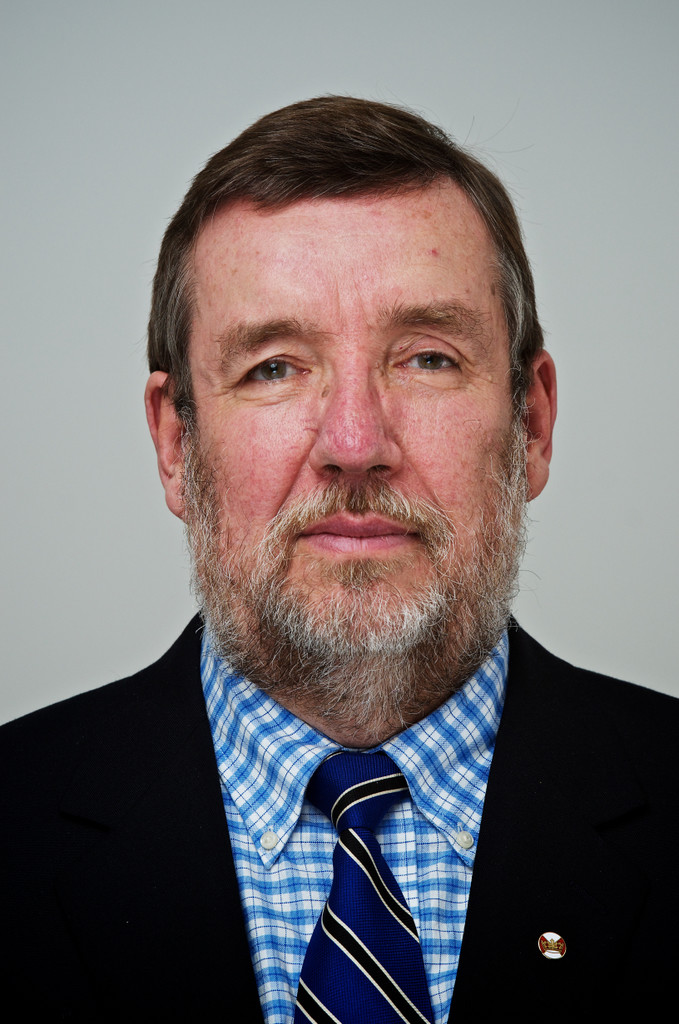Keith Hipel
 Keith Hipel is University Professor of Systems Design Engineering at the University of Waterloo where he is Coordinator of the Conflict Analysis Group. He is President of the Academy of Science within the Royal Society of Canada, Senior Fellow of the Centre for International Governance Innovation, Fellow of the Balsillie School of International Affairs, and Past-Chair of the Board of Governors of Renison University College.
Keith Hipel is University Professor of Systems Design Engineering at the University of Waterloo where he is Coordinator of the Conflict Analysis Group. He is President of the Academy of Science within the Royal Society of Canada, Senior Fellow of the Centre for International Governance Innovation, Fellow of the Balsillie School of International Affairs, and Past-Chair of the Board of Governors of Renison University College.
Keith thoroughly enjoys mentoring students and is a recipient of the Distinguished Teacher Award, Faculty of Engineering Teaching Excellence Award, and the Award of Excellence in Graduate Supervision from the University of Waterloo, as well as the 2011 Outstanding Engineering Educator Award from IEEE Canada. His major research interests are the development of conflict resolution, multiple criteria decision analysis, time series analysis and other decision-making methodologies for addressing challenging interdisciplinary system of systems engineering problems lying at the confluence of society, technology and the environment, with applications in water resources management, hydrology, environmental engineering, energy, and sustainable development. Keith is the author or co-author of 4 books, 12 edited books, more than 280 journal papers, as well as many conference and encyclopedia articles.
In recognition of his academic and professional accomplishments, Keith has received many awards and honors including being elected Fellow of the Royal Society of Canada (FRSC), Canadian Academy of Engineering (FCAE), Institute of Electrical and Electronics Engineers (FIEEE), American Society of Civil Engineers (FASCE), American Water Resources Association (FAWRA), International Council on Systems Engineering (FINCOSE), and Engineering Institute of Canada (FEIC). Keith is a recipient of the Joseph G. Wohl Outstanding Career Award from the IEEE Systems, Man and Cybernetics (SMC) Society, IEEE SMC Norbert Wiener Award, Japan Society for the Promotion of Science (JSPS) Eminent Scientist Award, and the Sir John William Dawson Medal from the RSC. He also received the designation of Docteur Honoris Causa from École Centrale de Lille, Icko Iben Award from AWRA, Doctor Honoris Causa from Obuda University, Outstanding Contribution Award from the IEEE SMC Society, Most Active SMC Technical Committee Award, W.R. Boggess Award from AWRA, and the University of Waterloo Award for Excellence in Research. Keith has held a Canada Council Killam Research Fellowship, Monbusho Kyoto University Visiting Professor Position, Stanley Vineberg Memorial Visiting Professorship, Centre National de la Récherche Scientifique (CNRS) Research Fellowship, and JSPS Fellowships. Moreover, he is a Professional Engineer (PEng), recipient of the Engineering Medal for Research and Development from Professional Engineers Ontario, and Co-Chair of the Council of Canadian Academies (CCA) Expert Panel on Energy Use and Climate Change: A Synthesis of the Latest Developments. He is Honorary Diplomate, Water Resources Engineers (Hon.D.WRE) in the American Academy of Water Resources Engineers (AAWRE), which is a subsidiary of the American Society of Civil Engineers (ASCE), and is Member of the Omega Alpha Association Systems Engineering Honor Society.
Keith served for two terms as Chair of his Department and for many years was a Member of the Board of Governors and Senate at the University of Waterloo. He is delighted to be a Member of the Board of the Waterloo Institute for Complexity and Innovation (WICI). Keith has been highly active in professional organizations such as the Royal Society of Canada, IEEE SMC Society, CAE, Group Decision and Negotiation, and AWRA; is the Founder of International Conference on Water Resources and Environment Research (ICWRER) and is Chair of its Steering Committee; and is an Associate Editor of many international journals including the IEEE Transactions on Systems, Man and Cybernetics: Systems; Group Decision and Negotiation; and Systems Engineering.
Listings of Keith’s research publications categorized according to topics and seminars that he presents on a rich range of academic themes can be found at his website. Citation information regarding Keith’s research is provided at his Google Scholar website.

